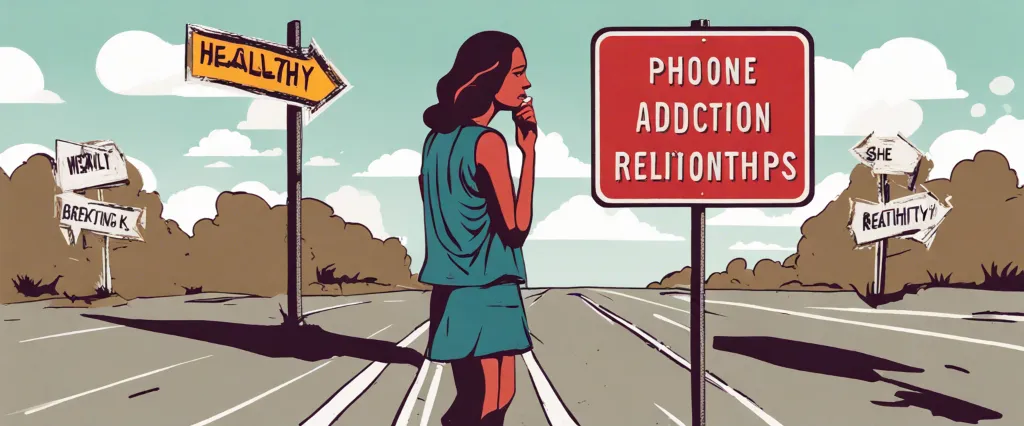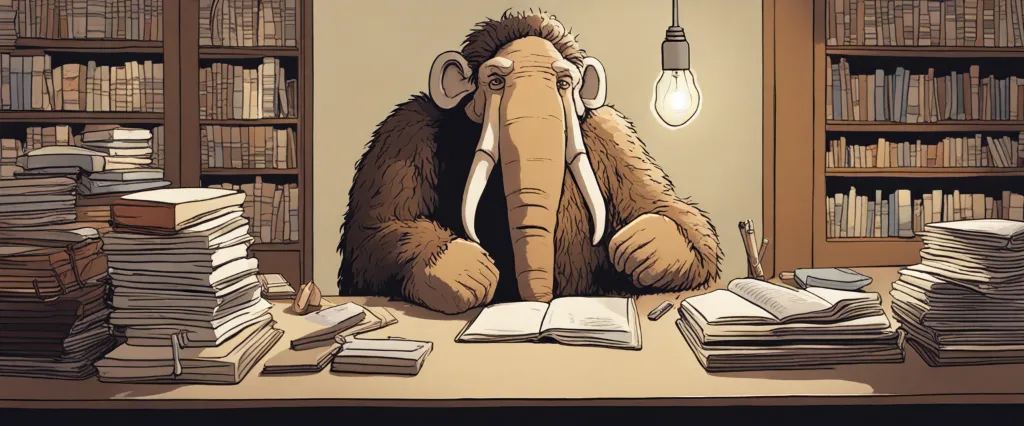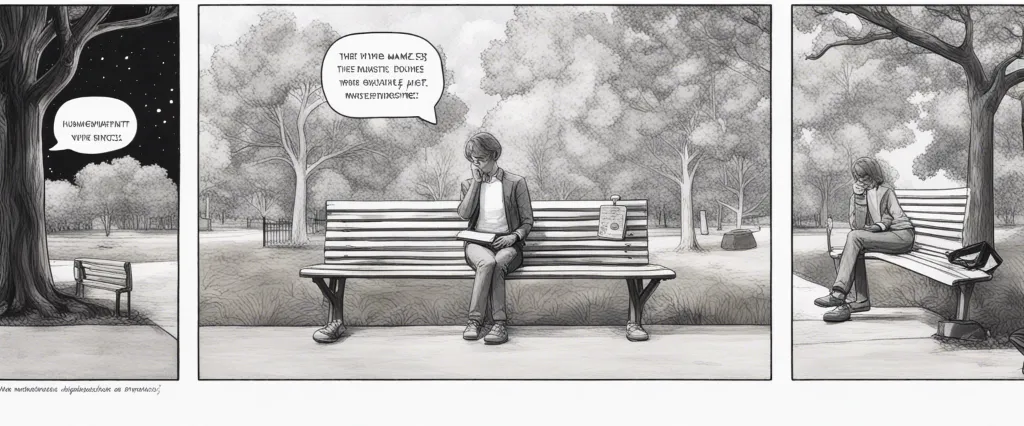
In a world dominated by technological advancements and the constant urge for connectivity, there arises a pressing need to evaluate the impact of our digital dependency and understanding its consequences. Within this context, two remarkable books, “How to Break Up with Your Phone” by Catherine Price and “Woolly” by Ben Mezrich, offer distinct perspectives on our interconnected modern lives.
On one hand, Price’s “How to Break Up with Your Phone” delves into the realm of digital detox and self-awareness, providing a comprehensive guide for reclaiming our attention from the grasp of our devices. With a wealth of research and personal anecdotes, Price dissects the insidious ways our phones have permeated every aspect of our existence. Her compelling argument, underscored by practical advice and thought-provoking exercises, urges readers to unplug, reevaluate their relationship with technology, and ultimately regain control of their lives.
On the other hand, Mezrich’s “Woolly” ventures into a captivating narrative exploring a scientific pursuit that pushes the boundaries of de-extinction and genetic engineering. Drawing on meticulous research and interviews, Mezrich tells the extraordinary story of Dr. George Church and his team as they attempt to resurrect the long-extinct woolly mammoth. In this tale, technology serves as both a catalyst and a moral quandary, as the ethical implications of playing nature’s creator unfold. Through the lens of cutting-edge scientific intervention, Mezrich prompts readers to reflect on the power of technology to reshape our environment and challenge our understanding of what it means to be human.
As we embark on this comparative study, we will unveil the underlying themes that intertwine these two narratives—be it our relationship with technology, the importance of self-awareness, or the intricate interplay between science and ethics. By examining the insights offered by Price and Mezrich, we hope to gain a deeper understanding of our digital existence and reconsider the way in which we navigate our ever-evolving technological landscape. Together, these books offer a compelling intellectual journey as we navigate the complexities of our modern world.
Brief Summary of Two Books
How to Break Up with Your Phone by Catherine Price
“How to Break Up with Your Phone” by Catherine Price is a insightful guide that helps readers develop a healthier and more mindful relationship with their smartphones. In a world where we are constantly connected and glued to our devices, Price provides practical strategies to regain control and reduce dependency on our phones.
The book begins by highlighting the negative impact excessive phone use can have on our mental and physical well-being, including decreased productivity, sleep disturbances, and impaired social interactions. Price then introduces the “Phone-life Balance quiz,” helping readers assess their current phone habits and identify areas that need improvement.
With her thorough research and expertise, Price educates readers about the addictive nature of smartphones and the manipulative techniques employed by app developers to keep users engaged. She also debunks common myths surrounding phone usage, such as multitasking abilities and the necessity for constant accessibility.
Next, Price outlines a 30-day plan called the “Phone-life Balance challenge,” which provides step-by-step instructions and exercises to reduce phone reliance. This includes setting boundaries, establishing phone-free zones, and implementing various strategies to minimize distractions.
Throughout the book, Price emphasizes the importance of developing alternative activities to engage in during phone-free time, such as mindfulness exercises, hobbies, and face-to-face interactions. She also encourages readers to embrace boredom and enjoy the benefits of disconnecting from the digital world.
In conclusion, “How to Break Up with Your Phone” offers a well-researched and practical approach to help readers overcome smartphone addiction and create a healthier relationship with technology. By implementing the suggested tactics and lifestyle changes, readers can regain control of their time and attention, leading to a more balanced and fulfilling life.
Woolly by Ben Mezrich
“Woolly” by Ben Mezrich is a gripping work of non-fiction that explores the controversial and groundbreaking field of de-extinction. The book primarily focuses on the story of George Church, a renowned geneticist and his team at Harvard University who set out on a quest to bring back the extinct woolly mammoth, using advanced genetic engineering techniques.
Mezrich delves into the science behind de-extinction, explaining how Church and his team extracted DNA samples from preserved mammoth carcasses found in the Siberian tundra. The author takes readers on a journey as Church’s team meticulously pieces together the fragmented DNA, cloning genes, and ultimately working towards creating a living mammoth genome.
However, the book is more than just a scientific account; it also explores the moral, ethical, and environmental implications of de-extinction. Mezrich raises thought-provoking questions about the potential consequences of playing god and tampering with nature. He also examines the potential benefits of de-extinction, such as ecological restoration and advancing scientific knowledge.
Throughout the narrative, Mezrich introduces readers to a cast of fascinating characters, including visionary scientists, wealthy entrepreneurs, and eccentric investors who are captivated by the idea of resurrecting extinct species. The author expertly weaves together their personal stories and motivations, adding depth and drama to the overall narrative.
“Woolly” is a thrilling and accessible book that sheds light on a complex and controversial topic. It raises questions about our relationship with nature, the limits of science, and the ethical implications of reviving long-extinct species. Ultimately, Mezrich leaves readers contemplating the profound impact that de-extinction could have on our planet and the future of life on Earth.
Comparison between Two Books

Similarities in Technology
In “How to Break Up with Your Phone” by Catherine Price and “Woolly” by Ben Mezrich, both authors touch upon the theme of technology and its impact on our lives. Although the focus of each book may differ, they share similarities in highlighting the following aspects:
1. Addiction to technology: Both books acknowledge the addictive nature of technology and the potential negative consequences it can have on our well-being. They examine how excessive use of smartphones or other technological devices can cause distractions, social isolation, and a lack of productivity.
2. Influence on relationships: Price and Mezrich emphasize the effect of technology on our interpersonal relationships. They explore how excessive screen time can not only lead to a disconnection from others but also hinder genuine face-to-face interactions and hinder the development of deep connections.
3. Psychological implications: The books delve into the psychological impact of technology on our mental health. They discuss how the constant need for validation through social media, fear of missing out (FOMO), and the pressure to always be connected can contribute to anxiety, stress, and a diminished sense of self-worth.
4. Manipulative design: Both authors shed light on the intentional design of technology to capture and hold our attention. They detail how apps, social media platforms, and other digital products employ persuasive techniques that exploit psychological vulnerabilities, making it difficult for users to disengage.
5. Call for a healthier relationship with technology: Despite addressing the negative aspects of technology, both books offer strategies and insights to establish a healthier relationship with devices. They emphasize the importance of mindful usage, setting boundaries, and finding a balance between the benefits and drawbacks of technology, ultimately promoting a more conscious approach towards its usage.
These similarities highlight the shared concerns regarding technology’s impact on our lives, specifically emphasizing the addictive nature, influence on relationships, psychological implications, manipulative design, and the need for a more mindful use of technology.
Divergences in Technology
“How to Break Up with Your Phone” by Catherine Price and “Woolly” by Ben Mezrich are two books that approach technology from different angles. While both books discuss the impact of technology on individuals and society, they diverge in terms of their focus and perspective.
In “How to Break Up with Your Phone,” Catherine Price aims to provide readers with practical strategies to regain control over their phone usage and develop a healthier relationship with technology. She acknowledges the addictive nature of smartphones and explains how they are intentionally designed to keep users hooked. Price emphasizes the negative consequences of excessive phone usage, such as decreased productivity, sleep disturbance, and impaired social interactions. Her book guides readers through a 30-day plan to gradually decrease their phone dependency, introducing mindful phone usage and promoting more balanced lifestyles.
On the other hand, “Woolly” by Ben Mezrich takes a broader look at technology, specifically focusing on the potential of biotechnology and genetic engineering. The book follows the story of the successful resurrection of the woolly mammoth, a long-extinct species, through the cutting-edge use of technology. Mezrich delves into the scientific breakthroughs and entrepreneurial ventures that have enabled this feat, highlighting the immense power and possibilities that technology, when harnessed responsibly, can offer. “Woolly” explores the ethical and philosophical implications of this technological advancement, raising questions about humanity’s role in playing God and the potential consequences of reviving extinct species.
While both books approach the topic of technology, their divergence lies in their focus and depth. “How to Break Up with Your Phone” concentrates on the personal impact of technology, providing readers with practical advice to manage their smartphone usage. In contrast, “Woolly” explores a broader technological advancement and its implications at a societal level, encouraging readers to consider the ethical and philosophical consequences of such advancements.
In summary, the books diverge in their approaches to technology. “How to Break Up with Your Phone” discusses the personal consequences of excessive phone usage, while “Woolly” explores the possibilities and ethical quandaries of biotechnology. Both books can contribute to a more comprehensive understanding of the impact and role of technology in our lives.

Conclusion
Both “How to Break Up with Your Phone” by Catherine Price and “Woolly” by Ben Mezrich are interesting books, but it ultimately depends on your personal interests and priorities. Here’s a brief comparison to help you decide which book may be more worthy of reading for you:
1. “How to Break Up with Your Phone” by Catherine Price:
– Subject: This book focuses on our addiction to smartphones and offers strategies to reduce screen time, develop a healthier relationship with technology, and regain control of your life.
– Benefit: If you feel like you spend too much time on your phone and want insights and practical tips for detaching from the digital world, this book can be highly valuable.
– Relevance: It’s particularly relevant in today’s digital age where smartphone usage has become pervasive and has led to various negative impacts on mental health, productivity, and relationships.
2. “Woolly” by Ben Mezrich:
– Subject: This book tells the story of the quest to recreate Woolly Mammoths, bringing extinct animals back to life through genetic engineering and cloning.
– Benefit: If you are interested in scientific breakthroughs, the ethical implications of genetic engineering, and the possibilities of de-extinction, this book offers an intriguing exploration of these topics.
– Relevance: It may appeal to readers who are fascinated by genetics, scientific advancements, and the potential of new technologies in reshaping our understanding of the natural world.
Ultimately, choose the book that aligns with your interests and goals. If you are seeking personal growth and want to reduce your screen time, “How to Break Up with Your Phone” may be the better choice. However, if you enjoy science, genetics, and the exploration of cutting-edge technologies, “Woolly” may be more worthy of your time.


